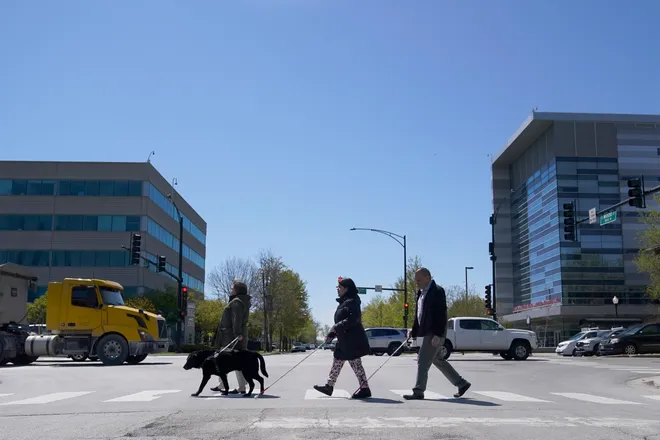Census Bureau backpedals on changes to disabilities questions amid backlash
The U.S. Census Bureau has put the brakes on a controversial proposal that would change how it counts people with disabilities.
Critics of the proposed change argue that it could underestimate the rate of people with disabilities by nearly 40%, making it more difficult for disabled people to get housing, healthcare, and legal protection against discrimination.
The Census Bureau received more than 12,000 comments from Americans after notifying the public of the planned change to the American Community survey. The majority of comments expressed concerns with the proposed question changes, according to the bureau Director Robert Santos.
"Based on that feedback, we plan to retain the current ... disability questions for collection year 2025," Santos announced in a post on the agency's site on Tuesday. "We will continue our work with stakeholders and the public to better understand data needs on disability and assess which, if any, revisions are needed across the federal statistical system to better address those needs."

How would the proposed changes affect disabled people?
The annual American Community Survey asks participants yes-or-no questions about whether they have "serious difficulty" with hearing, seeing, concentrating, walking or other functional abilities, according to reporting from NPR.
The bureau proposed a new set of questions that would have asked people to rate their level of difficulty with certain activities. The proposal aligns the U.S. with "international standards from the United Nations and advances in measuring disability," the Census Bureau said.
As part of the proposal, the bureau would base the total count of people with disabilities on those who report experiencing "a lot of difficulty" or "cannot do at all," in the survey. That would leave out those who respond with "some difficulty." The change could have decreased the estimated share of the U.S. population with any disability by around 40%, from 13.9% of the country to 8.1% NPR reported.
Supporters of the proposed changes argued that they would have allowed for better details about disabilities and more nuanced data, helping decide how resources or services are allocated.
Disability advocates react to controversial proposal
Some of the leading disability researchers against the proposed changes published a report earlier this week highlighting the the limitations of the updated questions.
"(The) questions are not intended to measure disability or count every disabled person," said the report. "Individuals with disabilities and disability advocacy groups should be actively involved in the decision-making process, particularly related to the collection and representation of disability data."
Disability advocates were relieved that the proposed changes were halted.
“Good news. Good news. Good news,” Scott Landes, a visually impaired associate professor of sociology at Syracuse University, told the Associated Press. “They got the message that we need to engage.”
The bureau's reversal "is a win for our community," Bonnielin Swenor, director of the Johns Hopkins Disability Health Research Center, said in an email to ABC News.
He continued: "We must stay committed to the long-term goal of developing better disability questions that are more equitable and inclusive of our community."

Disclaimer: The copyright of this article belongs to the original author. Reposting this article is solely for the purpose of information dissemination and does not constitute any investment advice. If there is any infringement, please contact us immediately. We will make corrections or deletions as necessary. Thank you.




